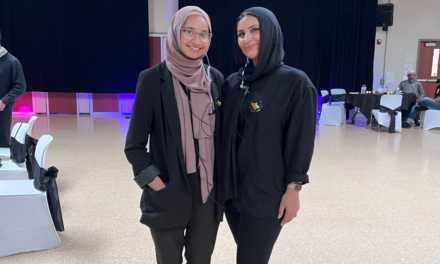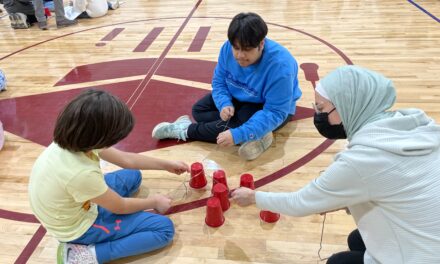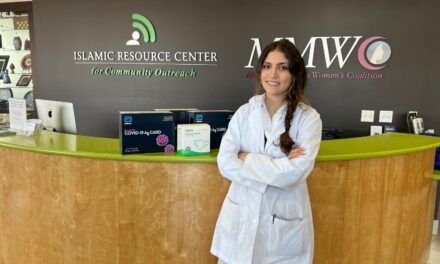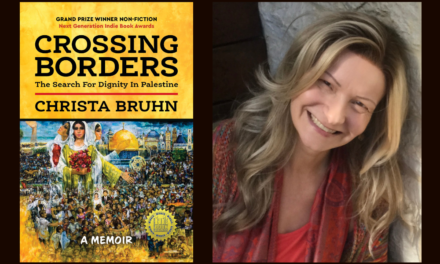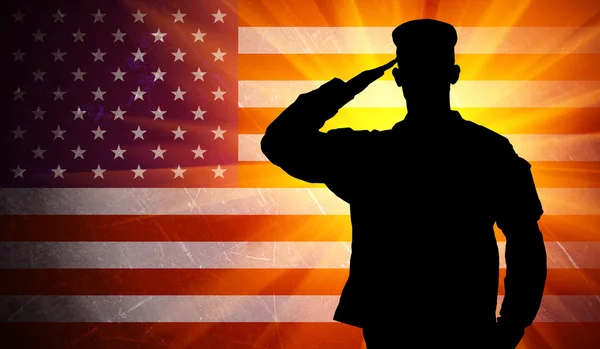
Muslim Americans serve in the U.S. military at higher rates than most segments of the population.
“Nine-eleven made me join the Army,” said Mustapha Touray of Madison this week in an interview over WhatsApp from his native country Gambia. “I decided to join the Army because of what so-called Muslims did. I was completely against it.”
“Enlisting to me meant defending the great nation where I had a lot of opportunities that helped me take care of my family back home,” said the Muslim immigrant who has lived in Wisconsin since the late 1990s. “Whatever it cost, I was happy to serve.”
Today, on Veteran’s Day, the Wisconsin Muslim Journal is honoring Wisconsin Muslims who served in the U.S. military. Two Muslim veterans’ stories are being shared today: Mustapha Touray of Madison who served in the U.S. Army and Austin Gonzalez-Randolph of Wausau who served in the U.S. Navy.
(Please let us know about Wisconsin Muslim veterans we can honor in the future. Email sandramuwhitehead@gmail.com to share your story or the story of a family member or friend who served in the U.S. military, including the National Guard and Reserves.)
A day to honor all veterans
Veteran’s Day was established “to honor America’s veterans for their patriotism, love of country and willingness to serve and sacrifice for the common good,” says a statement of the U.S. Veteran’s Administration’s Office of Public and Intergovernmental Affairs.
Veteran’s Day is celebrated nationwide on Nov. 11 each year. President Woodrow Wilson first proclaimed Veteran’s Day in 1919 to mark the armistice (ceasefire) between Allied nations and Germany that went into effect in the 11th hour of the 11th day of the 11th month of 1918, generally regarded as the end of “the war to end all wars,” World War I.
American Muslims serve in the military on par with or greater than other segments of the U.S. population, with the exception of Evangelical Christians, who are slightly higher, according to a new survey conducted by the Institute for Social Policy and Understanding. Eleven percent of American Muslims indicated a willingness to serve in the U.S. military, more than the 10% of Catholic and Protestant Christian respondents or 9% of those who are non-religious. Only white Evangelicals had a larger percentage (13%) saying they are willing to serve in the military.
White Muslims indicated they are more likely than white Americans in general to serve in the military (17% vs. 11%) and Black Muslims are as likely as Black Americans in the general public to serve (both at 10%).
“We love America as any other citizen loves America,” said Touray, quoted in a 2017 article in Madison Magazine about Madison’s Muslim community.
Mustapha Touray of Madison, U.S. Army Veteran
Sitting under a tree at midday in his native village in Gambia, while taking a break from helping relatives with the harvest, Touray, 49, recounted his experience as a soldier in the U.S. Army.
Touray, who immigrated to the United States from Gambia in 1997, was born Muslim. “My parents were Muslim. My great and great, great grandfathers were all Muslims,” he said.
After a short time in New York, he moved to Wisconsin, where he had a friend. He arrived in December, just before New Year’s Day. “It was freezing,” he recalled.
Touray found work at Madison-Kipp Corporation, a leading manufacturer of aluminum die cast, machine components. He married and made his home in Madison.
He changed jobs and began driving semi-trucks across the country for Schneider National, a regional and long-haul trucking company based in Green Bay. He drove “the big orange trucks” to New Jersey and the East Coast, all the way down to Florida, and back to Michigan, Wisconsin and Minnesota.
“Then 9/11 happened,” he said.
Touray enlisted in the U.S. Army in spring 2002. He did basic training at Fort Jackson in Georgia. Next, he had Advanced Individual Training at Fort Lee, a U.S. Army garrison in central Virginia. When he finished A.I.T., he deployed to Germany.
Touray was stationed in Germany for more than three years, during which he was deployed to the Middle East. He was with his unit in Kuwait on March 20, 2003, when President George W. Bush declared war on Iraq. Touray served in Iraq for 18 months.
Only one other Muslim was in the battalion, Touray recalled. The rest had probably never met a Muslim.
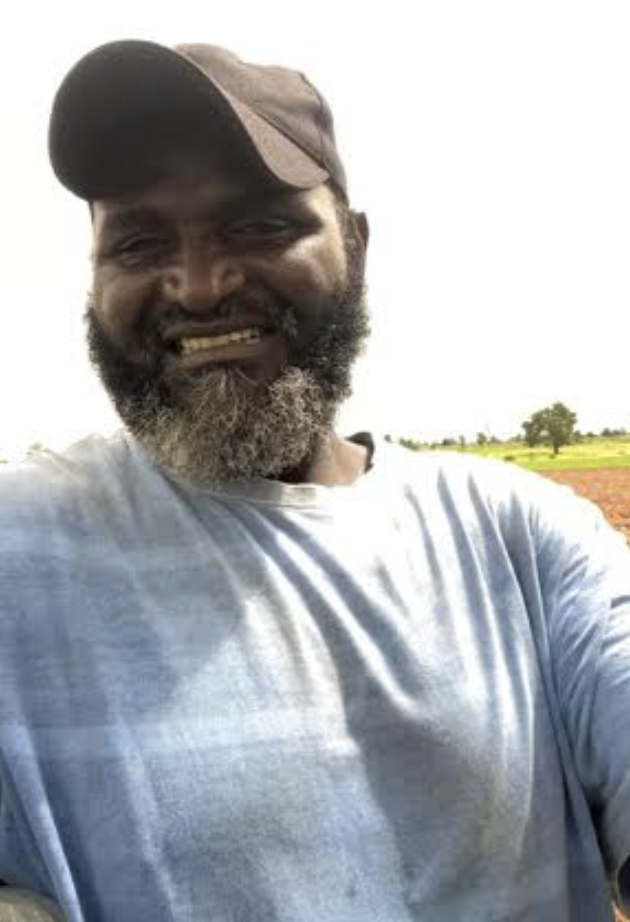
Mustapha Touray of Madison served in the U.S. Army in Germany and Iraq.
“They were curious and welcoming,” he said. “The officers and the intelligence people who were deployed to the Middle East were at least aware of some things about Islam because it was part of their training.”
“The Iraqis we worked with knew I was Muslim,” he said. “They treated me well and trusted me. They knew we shared a connection. That was nice.”
While in Iraq, the soldiers who worked in special forces captured Touray’s attention. “They looked very professional to me.” When back in Germany, he asked how to join those elite troops.
He learned about the rigorous selection process. “I started pushing myself,” he said. “I knew it was going to be hard.” He hiked in the German mountains with a heavy rucksack on his back and studied the required skills.
“Fortunately, I was selected,” he said. “It was awesome, a great feeling.” He waited eagerly for news about when he could start special forces training.
Touray was sent to Fort Benning, Georgia, for airborne training. Completing it, he received orders to report to U.S. Fort Bragg in North Carolina to continue special operations training. There, he had an accident that caused knee injuries.
Regardless, “I pushed myself to complete the training” and almost did, he said. “All I had left was weapon training but someone noticed my injury and sent me to the medical board.”
Touray was honorably discharged in 2008 due to those injuries. He also suffered post-traumatic stress disorder from experiences he had in Iraq and received treatment at the William S. Middleton Memorial Veterans Hospital in Madison.
He went back to school at Madison Area Technical College, where he completed an IT-Network Specialist associate degree. From there, he went to the University of Wisconsin-Stout, earning a bachelor’s degree in IT in 2013.
He also became engaged in Madison’s Muslim community. He volunteered with others to help the community build a bigger mosque. “Our community trusted me and I was responsible to manage the finances,” he said. “We moved from a little storefront to a big old church we bought on Madison’s East Side. It is now the Islamic Center of East Madison.”
A friend of Touray’s was the president and he was the treasurer. “When we bought it, I told them once the mosque is paid off, I’m going to give up my position, and that’s exactly what I did.”
Touray and his family still actively participate at the Islamic Center.
Austin Gonzalez-Randolph of Wausau, U.S. Navy Veteran
Austin Gonzalez-Randolph, 39, a licensed psychologist in private practice in Wausau, converted to Islam shortly after finishing active duty with the U.S. Navy. He talked about his military service and his conversion to Islam in an interview yesterday with WMJ.
When Gonzalez-Randolph was a junior at Riverside High School in Milwaukee, his stepbrother Josh enlisted in the Navy. Then “his recruiter presented the idea to me,” he said.
“It seemed like a good deal—serve your country and it will pay for your education. I didn’t have a plan for college, so that became my plan,” Gonzalez-Randolph said. “The military offered a good job, with a stable and decent income.”
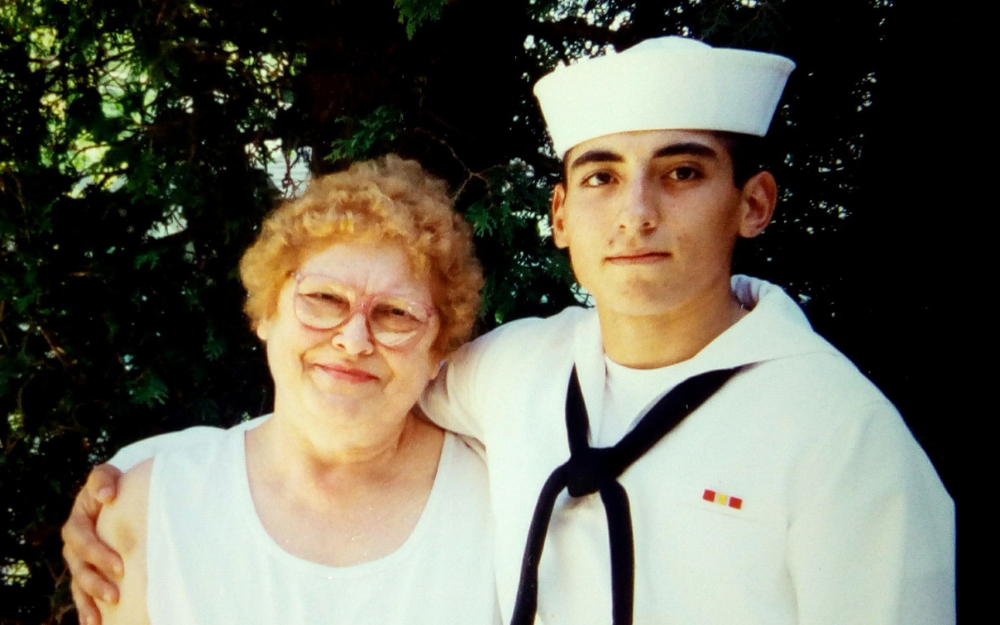
Austin Gonzalez poses with his grandmother Marjorie Randolph after graduating from U.S. Navy bootcamp.
After high school graduation, Gonzalez-Randolph headed straight to bootcamp at the U.S. Naval Station Great Lakes in Illinois.
“It was rigorous,” he said. “We had to follow a very strict schedule; you always had to be on your best behavior. They were really trying to mold people.
“And it continues after bootcamp, too. They teach you to be punctual, respectful, to know when to talk and when not to talk. They drill it into you.”
He continued his training as an electrician’s mate, then was given the option of being assigned to a command in San Diego or a port in New Jersey.
Gonzalez-Randolph chose New Jersey, and served on board the USS Detroit.
“Yeah, I know,” he said with a smile, “but I wanted to be close to New York. When I was a kid, I watched MTV and they’d be in Times Square. I always thought, ‘Oh, that looks great. There’s always lots of people and always something to do.’”
New York was a 40-minute bus trip, he recalled. During his two years in New Jersey, he went often.
“Typically, you are stationed four years somewhere for your first tour of active duty,” Gonzalez-Randolph explained, “but because our ship was old, they decided to decommission it.” He completed his term in Jacksonville, Florida, on the USS John F. Kennedy. As an electrician’s mate, he spent most of his time on both ships below deck.
Gonzalez-Randolph completed his service in 2006 then went to school on the G.I. Bill. It financed his undergraduate education and provided a monthly stipend.
He started at Milwaukee Area Technical College then transferred to the University of Wisconsin-Milwaukee, where he earned two bachelor’s degrees, one in political science and one in economics.
“I took so many classes as an undergrad the funds dried up by the time I got into my master’s,” he said. He took out student loans for his advanced degrees that he’ll “be paying off for a while.”
“I had a passion for learning, but it ended up costing me a lot of money,” he said.
Gonzalez-Randolph “always had an interest in psychology.” His undergraduate degrees in political science and economics “both have to do with human behavior,” he noted. “Why do people make the decisions they do? That is what interests me.” Today he holds a doctorate degree in psychology from Illinois School of Professional Psychology.
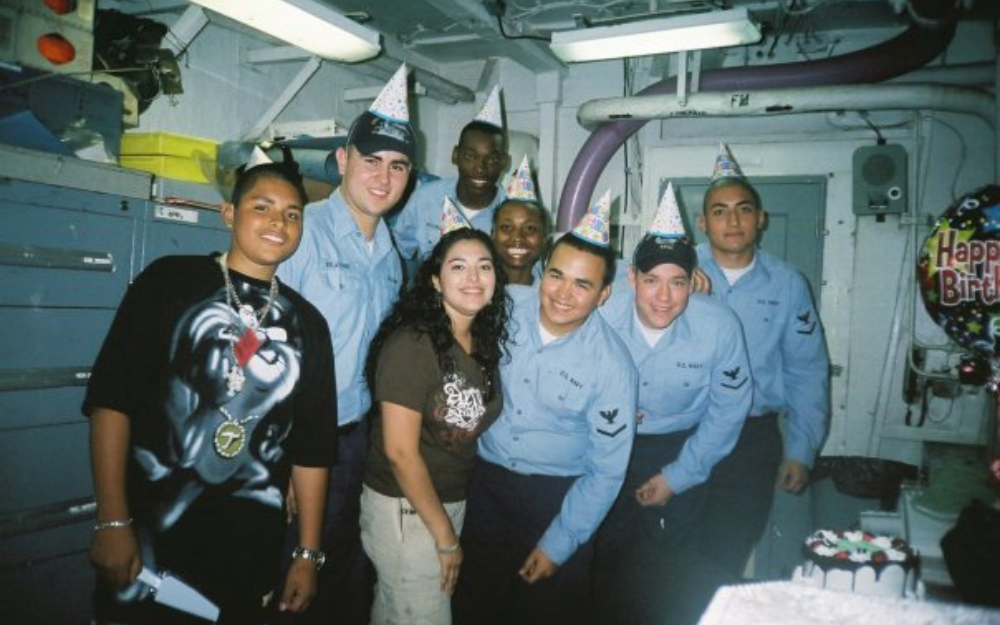
Austin Gonzalez-Randolph (far right) celebrates a shipmate’s birthday aboard the USS John F. Kennedy.
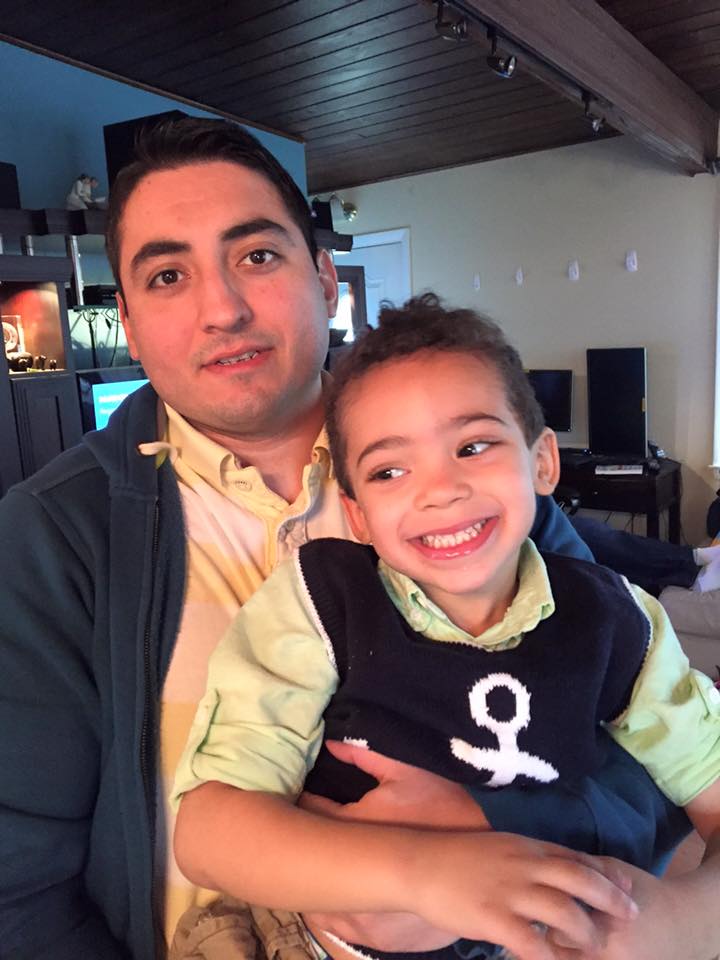
Navy veteran Austin Gonzalez holds his nephew Daniel at a visit to his sister’s house in 2016.
“I started thinking about Islam back when I was stationed in New Jersey with a coworker who was Muslim,” he said. “He was higher in rank and had been doing the job longer, so I shadowed him. As an electrician, I had to learn from someone, watching what they do and asking questions. It’s hours with this person.
“He was a nice guy and shared some things about Islam. What he told me seemed pretty sensible and good. He introduced me to some of the culture. But I didn’t convert to Islam until I got out of the service. I studied stuff he gave me and the Qur’an.
“After leaving the military, I was in my early twenties and would go out partying with friends on weekends, drinking and that sort of thing. I wanted to take a break from that lifestyle, get away from alcohol and live a different life, not that I was too wild or anything. I was a typical 20-something-old-Midwest guy.”
Back in Milwaukee, Gonzalez-Randolph lived near the Islamic Society of Milwaukee Layton. “I ended up visiting the mosque and met some really nice people there,” he said.
After a few visits, “someone I met there asked if I had considered making my Shehadeh, the Muslim declaration of faith. I didn’t have a good reason not to. I thought about it and decided to do it.”
“It did change my life. I was pretty conservative in the sense that I really adhered to the Qur’an, reading it and doing my daily prayers.
Gonzalez-Randolph was not sure how his Mexican-American Catholic family would take the news of his conversion, but they “seemed okay with it,” he said.
“I’m not preachy or extreme in my views,” he added. “I think that helped. I’m sure my mom thought it would’ve been easier if I just stayed like I was or pursued the Catholic faith. My mom’s side is Catholic.
“My dad would give me a hard time but nothing too serious. He knew it was my choice.
“Things are a bit more relaxed now when it comes to being an American Muslim. It’s not to say there is not Islamophobia but things have calmed down since the Iraq War and as we are further removed from 9/11.”
In Wausau, Gonzalez-Randolph attends a small mosque every Friday. “It’s pretty much a house converted into a masjid. It’s a small community here. But it’s very close to my house, only a 10-minute drive. That worked out.”
